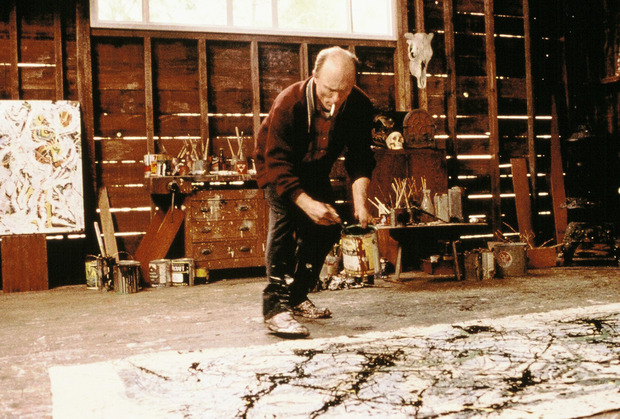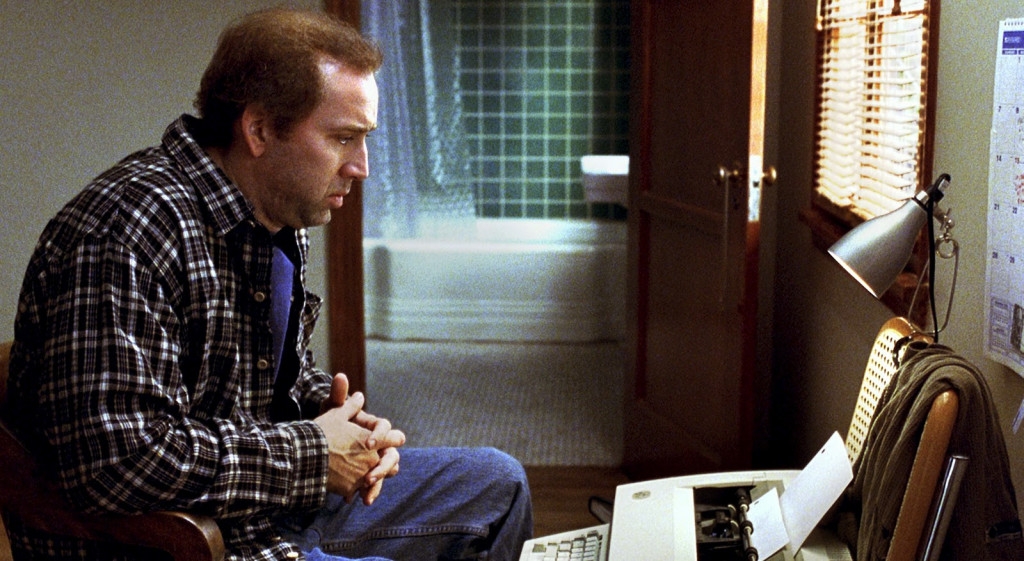 A Marvel superhero? Or a writer’s demons?
A Marvel superhero? Or a writer’s demons?
Screenwriting is in a funny place right now. The days of the huge spec sale are more a part of the past than the present. When you meet with managers and agents these days, they’re more likely to ask you about your latest TV pilot than your latest feature spec. As Marvel grows its brand, filling more and more of those precious movie slots with its bottomless pit of superhero characters, there’s more uncertainty than ever about what the industry wants. I mean it used to just be, “Write something marketable that you’re passionate about.” But that’s not enough anymore. You need a strategy.
With that said, most writers still make it into the industry the old fashioned way – hard work. They write something that speaks to them. It ends up being good enough for people to pass around. The writer gains fans, writes something else, gains more fans, builds his network, and sooner or later, writing assignments start coming his way. They’re small at first, but they get bigger as the writing improves. Some of these writers take the feature assignment career route. Some join TV staffs. Eventually, they become consistent working writers in the industry.
Now what they do from there – whether they stay at that low-to-middle working professional status or break into the elite level – is dependent on a number of factors. And that’s what I’d like to talk about today. I want to discuss “writer stages.” I read so many screenplays and most of the time after I finish, I think, “If this writer doesn’t change, they’re going to be stuck in this stage for the rest of their lives.” Part of being a good writer is recognizing where you’re at and working to fix your weaknesses. If you’re not willing to do this, stop writing now. You need to be a student of this craft, as well as your involvement in it, if you want to succeed.
STAGE 1 – THE ARROGANCE STAGE
WRITER NICKNAME – “THE CONTEST SUPPORTER”
The Arrogance Stage represents one of the most common misconceptions about screenwriting – that it’s easy. People see movies like “Need for Speed” and know, for a fact, that they can write something better. So they write a script, maybe two, and start hawking them around town, waiting for everyone to hail them as industry saviors. These scripts are the worst scripts I read, by far, as there’s a lethal combination of suckitude going on. One, the writer is using the industry’s worst movies as their bar. Therefore, everything is written to be only slightly better than that terrible movie they saw. The irony is that even though these writers THINK they’re better than the writers who wrote Need for Speed, they’re actually a lot worse. So they’re giving us an even suckier version of an already sucky movie.
And second, the writers have never studied storytelling on any level. It’s such an arrogant oversight that it actually infuriates the reader. It would be like wanting to be a surgeon but never studying the inside of the body. These scripts always lack original concepts, build, suspense, rhythm, character development, structure, or anything resembling what makes a story work. To add to the fun, there is so little respect for the craft, that the scripts are often riddled with misspellings, misused words, grammatically incorrect sentences, and more. I call these writers “Contest Supporters” because their scripts typically comprise of 75% of all contest entries and therefore fund the contest for the real writers.
To Break Out: To break out of The Arrogance Stage, you need to come to terms with reality. Your first scripts probably aren’t any good. They might be. But you need to operate under the assumption that they’re not. One of the biggest steps a beginner writer can take is admitting that being a professional screenwriter is hard. Once they do this, there will be a tectonic shift in the way they approach the craft. They will now put some real time and effort into the practice, and this should thrust them into Stage 2 in no time.
STAGE 2 – THE FOG-OF-WAR STAGE
WRITER NICKNAME – “THE JACKSON POLLACK”
I call this the “Fog of War” stage because you rarely know where you are as a screenwriter while in this stage. How effective can you be if you’re not sure whether you’re 20 feet from the enemy or 20 miles? The commonality I see with these scripts is tiny bursts of good writing, followed by long chasms of bad writing. Why does this happen? Well, you’ve only just started learning the principles of screenwriting. So you know a few things, like what “3 act structure” and “character arc” mean, but since you’ve only written 2-3 screenplays, you’ve only been able to practice these principles 2-3 times. When have you ever perfected anything on the 3rd try? Likewise, you haven’t learned how to deftly hide exposition yet, how to come into scenes late, how to use subtext (etc., etc., etc.). Some of these things will come more naturally than others, but rarely can a writer nail them all immediately. I call these writers “Jackson Pollocks” because it feels like they’re randomly throwing paint against the canvas, hoping that the sheer earnestness of their intent will result in a masterpiece.
To Break Out: You need to embrace the study-bug in this stage. Read as many screenwriting books as you can afford. Read as many screenplays as you can find time to read (produced, unproduced, and amateur!). As soon as you learn something, go practice it. Study, read, write. Study, read, write. This stage takes time, because learning all the elements of good storytelling doesn’t happen overnight. But if you’re serious about screenwriting, this tends to be the stage that gives you your screenwriting armor.
STAGE 3 – THE STAGE OF DEATH
WRITER NICKNAME: “THE CYBORG”
I call this The Stage of Death because this is where many screenwriters, writers who have given years to the craft, disappear silently into the night, never to be heard from again. They’ll feel like they gave it their all, but couldn’t get over the hump for some reason, and so they leave. I have some strong opinions about these writers. Real writers never give up. They NEED to write. First and foremost, writing has to be FOR YOU. It has to be an outlet that you can’t stop yourself from doing, like a drug. Sure, as you get older and the complexities of life get in the way (i.e. supporting a family), you’ll have less time to write. But if you love this craft, you should never stop writing.
While Stage 1 scripts make me the angriest to read, and Stage 2 scripts are the most boring to read, Stage 3 scripts tend to be the most frustrating to read. That’s because by this stage in the game, the writer generally knows what they’re doing. They know how to tell a story. The problem is, they haven’t figured out how to tell a good story. A big part of the problem is that these scripts are driven too fiercely by structure and technicalities. Writers have learned what the books tell them to do, but they’re overplaying these elements, creating a robotic experience for the reader (hence: “The Cyborg”). These are the scripts that make the quarterfinals, maybe even the semifinals, of contests, and they show a respect for and an understanding of the craft. But they just don’t resonate. It’s almost like the scripts lack soul.
To Break Out: To break out of this stage, two things need to happen. First, there needs to be a change in philosophy. You know the technicalities of screenwriting. Now you have to go back to the mindset of a beginner. Instead of trying to meet technical checkpoints, start writing on “feel” again. Let your emotions guide you. Take a few chances. Break a few rules. The problem with writing a technically proficient script is that it reads like a technically proficient script. It’ll get you high grades with your professors, but low grades from readers who actually want to be moved. To get to the next level, you have to start emotionally connecting with the reader, and writing on emotion will help that. Now don’t get me wrong. You still want to follow the general guidelines of good storytelling. You just no longer want those guidelines to dominate your script.
The second thing that needs to happen is you need to identify your biggest weaknesses and work on them. If you suck at dialogue, you need to dedicate huge chunks of time to improving your dialogue. Finding your weaknesses requires getting HONEST feedback from others, not the “rah-rah” feedback that makes you feel good but keeps you chugging along at the same level. Locate where you suck and work to improve yourself.
STAGE 4 – THE TINY STAR STAGE
WRITER NICKNAME: “THE FRUSTRATED PROFESSIONAL.”
Getting to this stage is a big deal. You feel like you’ve crossed a major hurdle. You either have a manager or an agent (or both), secured a legitimate option or two (from a big production company) and/or have gotten assignment work. But for whatever reason, you still feel like an outsider, like a Stage 3. Your scripts aren’t landing on that prestigious Black List. Nor are they being fielded by the upper echelon of Hollywood – the people who can actually make things happen. What’s wrong?
Well, I can tell you what I see in the scripts themselves. These offerings are better than Stage 3 scripts. But upon reading them, I always feel like I’ve read them before. While the characters are well-written and the story is solid, I generally know what’s going to happen next, and therefore the story feels like it’s going through the motions. In some ways, these scripts are just as frustrating as the Stage 3s because you can see the potential for the story to break out, but it never does.
To Break Out: Three things need to happen to break out of this stage. First, take more chances. If you want to write something great, you need to take chances, because those chances are going to lead to the differences that make your script stand out against your competition. Taking chances is terrifying. But since the best stories are unpredictable, you need to make some unpredictable choices to write something great.
Second, you need to focus more on character. When I read the top scripts out there, it’s the characters that take hold of me, who make me feel something, who give me the warm and fuzzies. Rarely does a plot point touch me on an emotional level. So learn how to build interesting characters, how to build likable characters, how to build compelling relationships, how to arc characters, how to create problems between characters that need to be resolved. Learn how to make relatable characters and situations so that readers feel a connection to the people you’re writing. In short, focus more on character.
Finally, challenge yourself more. Most writers believe they only have a fifth gear. You actually have a sixth gear. And this is the gear that turns good scripts into great ones. Let me give you an example. Ben Ripley, the writer of Source Code, wrote a series of drafts of Source Code where an investigator comes in and investigates a time-altered train crash. He created the “5th Gear” version of this story. And he could’ve stopped there and sent the script out. But he decided to challenge himself, to push and find the element of the story that turned an average script into a great one. This led him to realize a more interesting take was to shift his main character from an impartial investigator to one of the passengers on the train. The next thing he knew, his script became one of the hottest in Hollywood.
STAGE 5: THE SUPERNOVA STAGE
WRITER NICKNAME: “THE TRUE PROFESSIONAL”
A Stage 5 script is a script that moves me. And you move people by creating compelling realistic characters going through universal problems that the average person relates to. Combined with a story that tackles strong universal themes (forgiveness, family, love, etc.) you can really move a reader. When you add an original concept and an unpredictable plot, you can count yourself among the best writers in the world. Of course, even Stage 5 writers are unsatisfied. I suppose the only thing that makes you happy at this stage is an Oscar. But you know what, if that’s your biggest problem in screenwriting? Is that you haven’t won an Oscar yet? I think you’re doing okay.
Now obviously, no two screenwriters’ journeys are alike. I’m not saying that every writer should be pigeonholed into one of these five stages. I’m saying that based on the scripts that I’ve read, this is where most screenwriters lie. But if that’s too complicated for you, here’s a simplified version of the plan: Treat yourself as a student of the craft. Always be studying. Always be reading. Always be writing. The second you think you’ve got it figured out in this business is the second you’re done. You should always be trying to get better!



